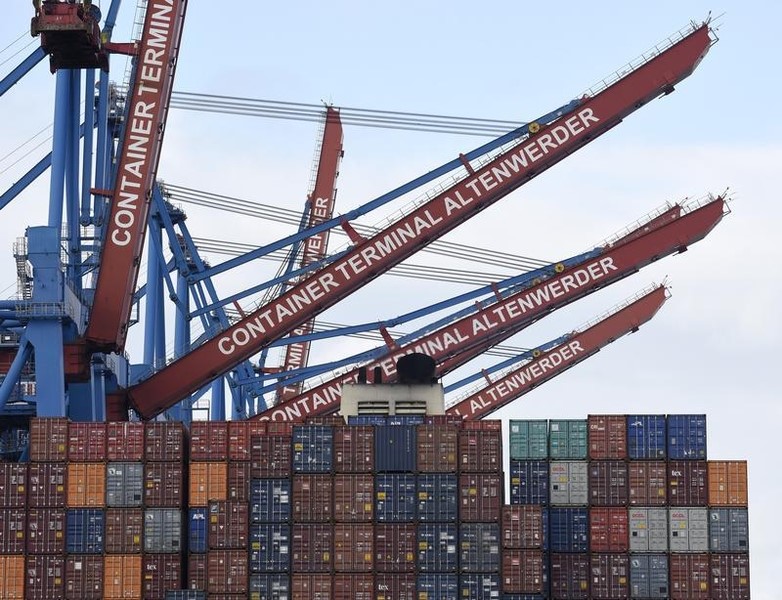By Michael Nienaber
BERLIN (Reuters) - German exports bounced back in February, rising at the strongest rate in five months and beating expectations as demand from the country's European partners jumped.
Coming two days after figures showed industrial output fell less than expected in February, Friday's Federal Statistics Office trade numbers added to hopes that German economic growth could accelerate in the first quarter.
But with orders from abroad having dropped as the global economy struggles, analysts played down prospects of exports returning as a powerful growth engine for Germany in coming months.
Seasonally adjusted exports rose 1.3 percent on the month in February after falling in two consecutive months. That was the biggest increase since September and well above the 0.5 percent forecast in a Reuters poll of economists.
Imports edged up 0.4 percent, widening Germany's trade surplus to 19.8 billion euros. Economists polled by Reuters had expected a decline of 0.3 percent.
A breakdown of unadjusted data showed demand from European Union countries rose 5.5 percent in February, with exports to non-euro zone countries jumping 9.3 percent. Exports to countries outside the EU were up 2.0 percent.
The pattern was the same for German imports.
ING economist Carsten Brzeski said the trade data offered some cause for relief but, with consumption still strong and construction booming but industry and exports stagnating, the German economy was losing some of its lustre.
"German exports have lost part of their magic and strength," he said, adding net exports on average did not contribute anything to quarterly GDP growth over the last two years.
In 2015, strong private consumption and higher state spending drove an economic expansion of 1.7 percent.
Analysts have said they doubt that growth this year will surpass that pace.

The country's leading economic institutes will update their growth forecast for 2016 on April 14, and the government is expected to publish its updated forecast on April 20.